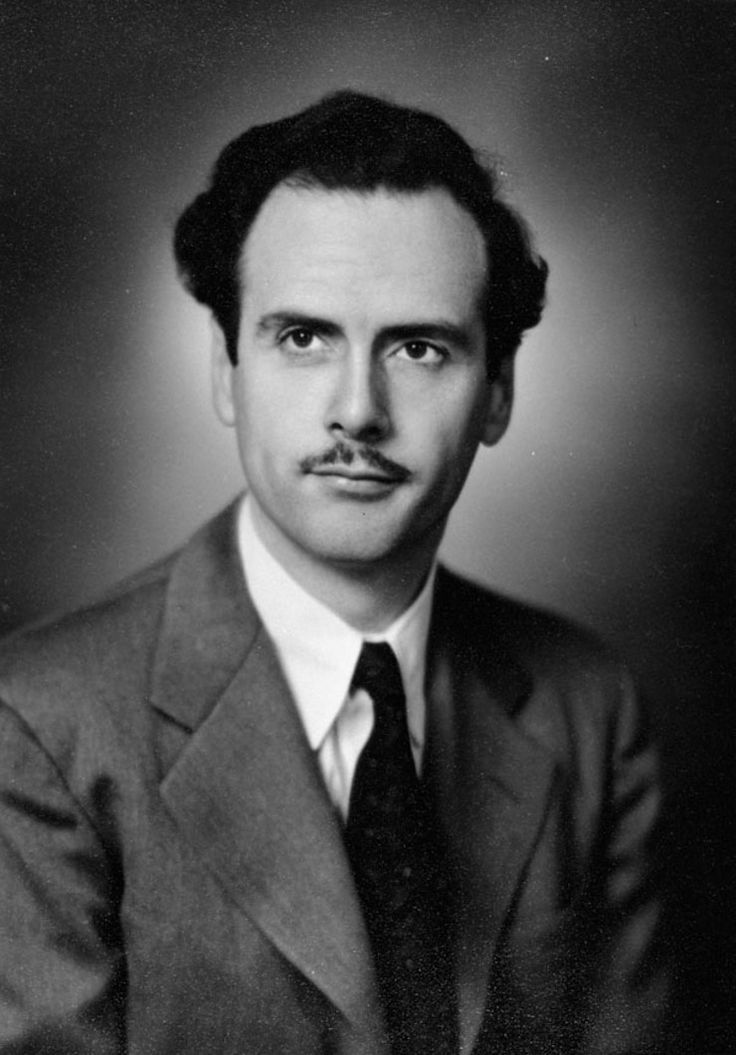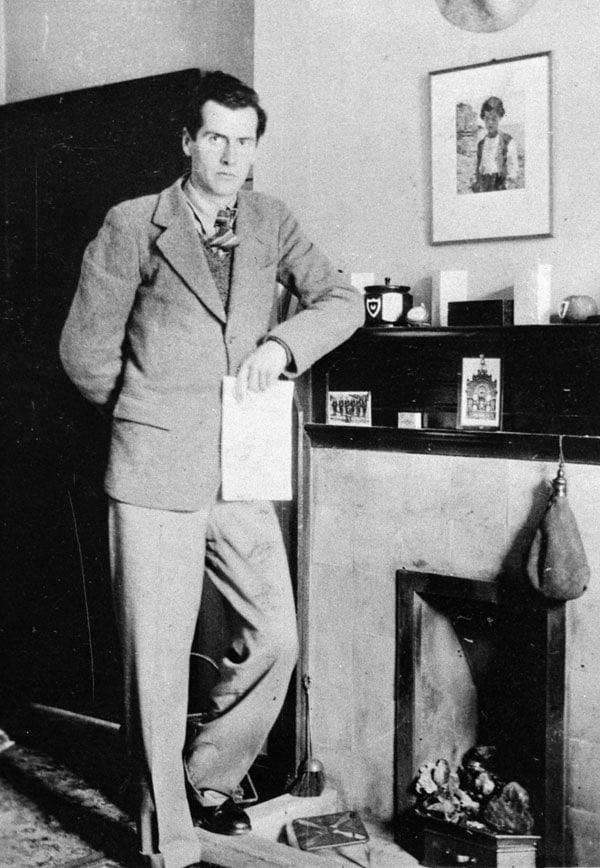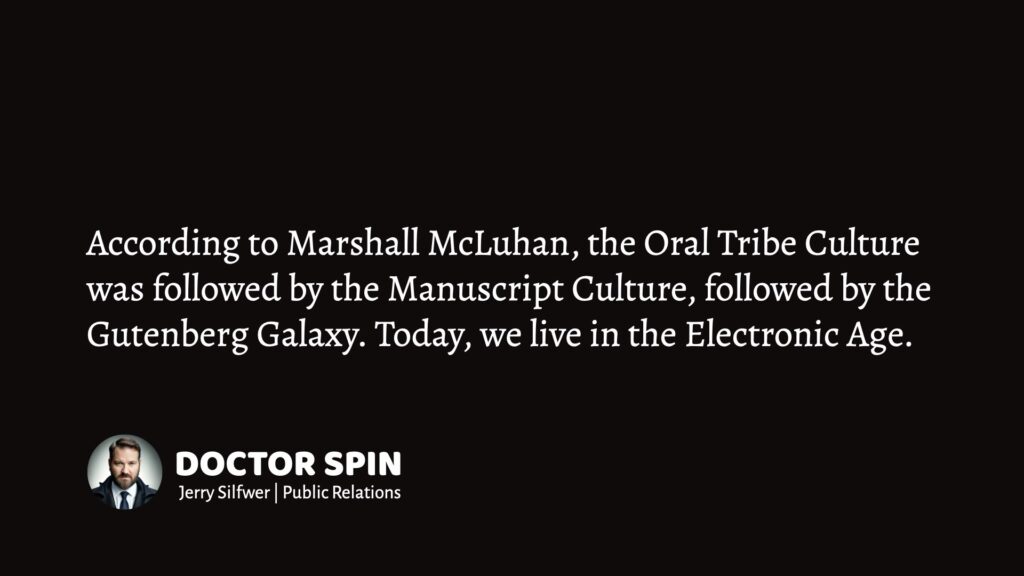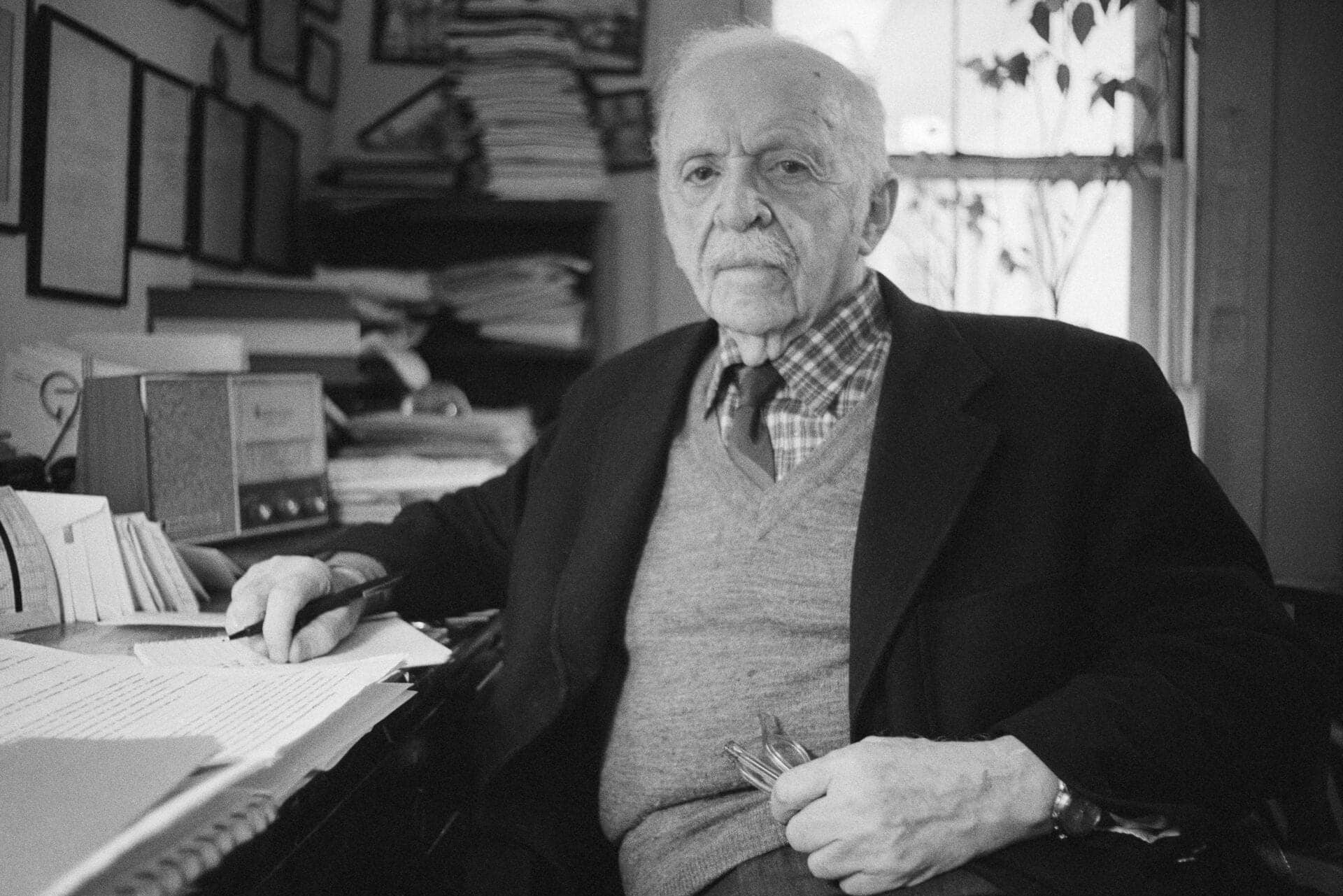Marshall McLuhan coined the phrase, “The medium is the message.”
But what does it mean?
Who was Marshall McLuhan?
And how does it relate to PR?
Here we go:
Marshall McLuhan: “The Medium is the Message”
“The medium is the message” is a phrase coined by the Canadian philosopher Marshall McLuhan in the first chapter of his notable book “Understanding Media: The Extensions of Man.” 1Understanding Media. (2023, September 18). In Wikipedia. https://en.wikipedia.org/wiki/Understanding_Media

Despite being one of the most influential thinkers in media theory, McLuhan’s ideas are often widely misunderstood. “The medium is the message” is no exception.
“The medium is the message” doesn’t imply that content or substance lacks importance; it only implies that the medium in which messages are sent will significantly impact humanity.
McLuhan viewed human technologies as extensions of our human physiology. Our ability to build houses extends our human skin, as it protects against the elements. This added layer of protection and physical safety frees up mental bandwidth for human interaction.
In McLuhan’s interpretation, a house is a medium. All human technologies, down to the campfire, are considered mediums.
“McLuhan’s insight was that a medium affects the society in which it plays a role not by the content delivered over the medium, but by the characteristics of the medium itself. […] McLuhan pointed to the light bulb as a clear demonstration of this concept. A light bulb does not have content in the way that a newspaper has articles or a television has programs, yet it is a medium that has a social effect; that is, a light bulb enables people to create spaces during nighttime that would otherwise be enveloped by darkness.”
Source: Wikipedia 2Marshall McLuhan. (2023, May 15). In Wikipedia. https://en.wikipedia.org/wiki/Marshall_McLuhan
McLuhan argued that our ability to create technological extensions of our human abilities fundamentally impacts our society — far more than any single message conveyed via the new technology.
For example:
And so on.
Why is McLuhan’s analysis necessary?
“The medium is the message” is a stark reminder that a medium’s format (and limitations) will massively impact human society — and the messages themselves, too.
Holistically, a new technological medium will impact humanity significantly more than any single message transmitted through that medium. But Marshall McLuhan said it better, “The medium is the message.”
We often default to seeking meaning in messages but forget to consider the medium’s inherent media logic.
Learn more: Media Logic is Dead, Long Live Media Logic
Enter: The Electronic Age
Human culture is often described based on our access to production technologies (e.g., the Stone Age, the Bronze Age, and the Iron Age).
According to Marshall McLuhan and the Toronto School of Communication Theory, a better analysis would be to view societal development based on the prominence of emerging communications technologies.

McLuhan’s Four Epochs
McLuhan suggests dividing human civilisation into four epochs:
“The Gutenberg Galaxy is a landmark book that introduced the concept of the global village and established Marshall McLuhan as the original ‘media guru’, with more than 200,000 copies in print.”
Source: Modern Language Review 3McLuhan, M. (1963). The Gutenberg galaxy: the making of typographic man. Modern Language Review, 58, 542. https://doi.org/10.2307/3719923

As a PR professional and linguist, I subscribe to the concept of the Electronic Age. I firmly believe society is unlikely to revert to the Gutenberg Galaxy.
Like the rest of society, the PR industry must commit to digital-first, too. Mark my words: It’s all-in or bust.
Read also: The Electronic Age and the End of the Gutenberg Galaxy
Background: Marshall McLuhan
Marshall McLuhan, a pioneering figure in media theory, is known for his profound impact on understanding media’s role in society. 4Marshall McLuhan. (2023, November 17). In Wikipedia. https://en.wikipedia.org/wiki/Marshall_McLuhan
McLuhan was born on July 21, 1911, in Edmonton, Alberta, Canada. McLuhan was the son of a real estate and insurance salesman and an actress, which might have influenced his interest in media and communication. His mother, Elsie Naomi McLuhan, was an actress and elocutionist, influencing his interest in speech and communication. He suffered a stroke at the age of four, which affected his ability to read and write for several years.
McLuhan’s time at Cambridge University, where he studied under influential literary critics like F.R. Leavis and I.A. Richards, deeply shaped his intellectual development. His PhD dissertation at Cambridge focused on the Elizabethan playwright Thomas Nashe and the verbal arts. It explored the classical trivium of grammar, dialectic, and rhetoric, reflecting his lifelong interest in language and communication.
McLuhan taught at several universities, including the University of Toronto, where he spent much of his career.
Before his fame in media theory, McLuhan published articles on advertising and business management. His first major book, “The Mechanical Bride: Folklore of Industrial Man” (1951), examined popular culture and advertising. 5The Mechanical Bride. (2023, November 12). In Wikipedia. https://en.wikipedia.org/wiki/The_Mechanical_Bride
McLuhan was also a poet, with his work exhibiting a complex, symbolist style. He appeared in Woody Allen’s film “Annie Hall” (1977), playing himself in a famous scene. McLuhan collaborated with avant-garde artists, including Harley Parker and John Cage, reflecting his interdisciplinary approach.
McLuhan suffered a stroke in 1979 that affected his ability to speak. He died in 1980.
Although McLuhan’s work was controversial during his lifetime, his insights have gained increasing recognition and relevance in the digital age with the rise of the internet and social media.
McLuhan’s work laid the foundations for the field of media ecology, which studies media environments and their effects on human experience and understanding.

THANKS FOR READING.
Need PR help? Hire me here.

What should you study next?
Spin Academy | Online PR Courses

Influencing PR: Notable Contributors
It’s noted that the gender bias is apparent here. I’m currently researching a more balanced list.
Public Relations Contributors
Learn more: All Free PR Courses
💡 Subscribe and get a free ebook on how to get better PR.

Annotations
| 1 | Understanding Media. (2023, September 18). In Wikipedia. https://en.wikipedia.org/wiki/Understanding_Media |
|---|---|
| 2 | Marshall McLuhan. (2023, May 15). In Wikipedia. https://en.wikipedia.org/wiki/Marshall_McLuhan |
| 3 | McLuhan, M. (1963). The Gutenberg galaxy: the making of typographic man. Modern Language Review, 58, 542. https://doi.org/10.2307/3719923 |
| 4 | Marshall McLuhan. (2023, November 17). In Wikipedia. https://en.wikipedia.org/wiki/Marshall_McLuhan |
| 5 | The Mechanical Bride. (2023, November 12). In Wikipedia. https://en.wikipedia.org/wiki/The_Mechanical_Bride |


